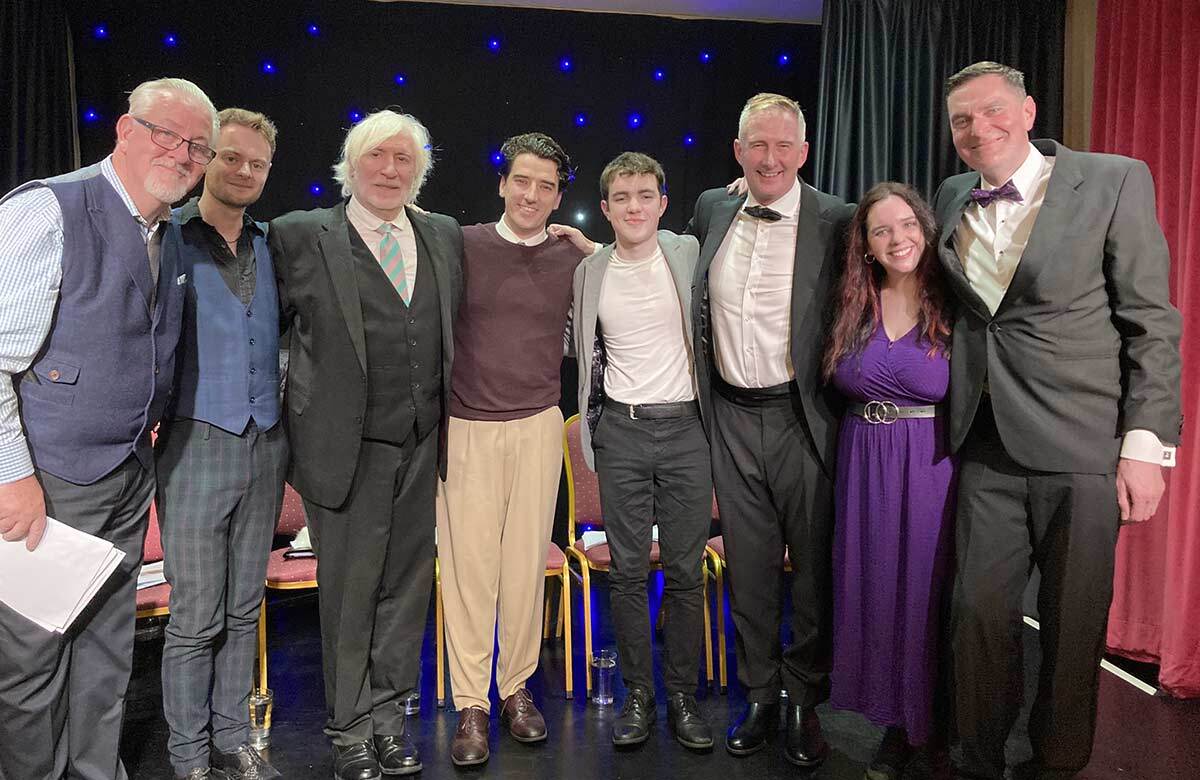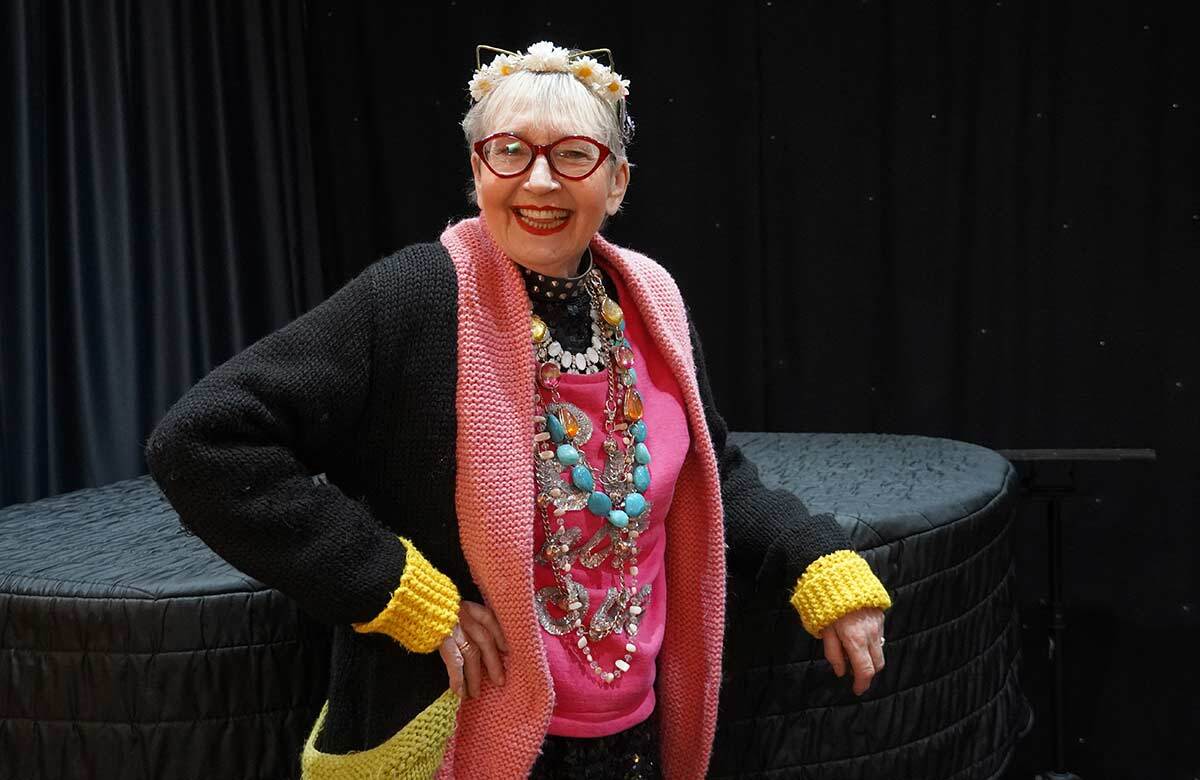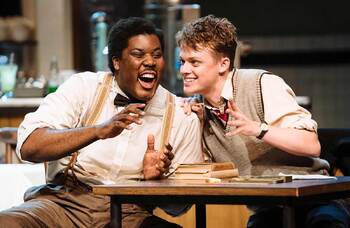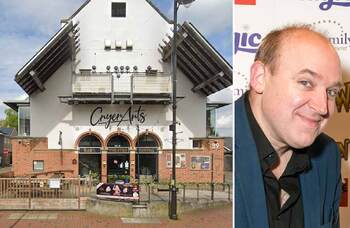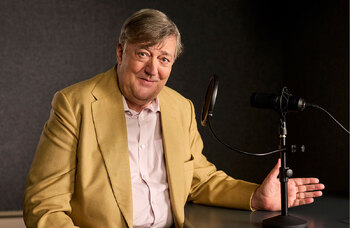The Club for Acts and Actors, 75 years on: London's hidden gem helping actors in need
The little-known Club for Acts and Actors has a rich history supporting actors and putting on events in its West End home. As it celebrates its 75th anniversary, it’s seeking to broaden its reach and recruit younger members. Nick Smurthwaite finds out more
It has been called the West End’s best-kept secret – even veteran taxi drivers have been known to scratch their heads – but the Club for Acts and Actors, celebrating its 75th anniversary this year, is finally ready to spread its wings. “It should be for everybody in showbusiness, young and old,” says incoming president Su Pollard, who will be spearheading a drive for younger members.
From the outside, the not-for-profit club in Bedford Street looks, like any other central London office building, anonymous and unremarkable. But once you’ve stepped through the bright red door into the inner sanctum, things begin to look a lot more razzmatazzy.
The walls are festooned with variety posters and playbills from a bygone era, with titles like See You Tonight and Let’s Be Gay, and there is a bright, spacious bar where the prices of food and drink make you wonder if you’ve been timewarped back to the 1990s. There is also a small studio theatre, with a grand piano on the stage, where the club’s regular variety evenings take place.
As with London’s hospitality sector in general, the CAA was poleaxed by the pandemic. But it’s made a good recovery with a smallish yet enthusiastic membership and a new chairman, Nicholas Robinson, a former child actor who played William Beech in the 1998 film Goodnight Mister Tom, now in his late 30s, who currently works in theatre ticketing.
He says: “While respecting the traditions of the past, it’s the right time to encourage some younger members of the business to join us. It’s been run by retired or semi-retired people for so long, I’m hoping it will be useful to have someone who is still active and still in contact with a lot of working actors and showpeople.
‘While respecting the traditions of the past, it’s the right time to encourage younger members of the business to join us’ – CAA chair Nicholas Robinson
“It’s also important to remember that it’s not just a friendly club with a cheap bar, it’s also a benevolent association that helps people when they most need it. That’s the really important bit.”
The Concert Artistes’ Association, which still officially runs the club, has actually been going since 1897 when a group of public- spirited performers, led by one George Robins, banded together to form a benevolent society to help those in the profession who had fallen on hard times, while at the same time creating a members-only social hub where they could hang out together.
Continues...
To mark the centenary of the Concert Artistes’ Association in 1997, long-time member Larry Parker published a comprehensive history of the association, But What Do You Do in the Winter?, explaining how variety performers used to head for London at the end of the summer season, becoming what was then known as a ‘concert artiste’. They provided light entertainment at functions, Masonic dinners, concert parties and corporate events, performing lyric ballads and humorous monologues.
The word ‘artiste’ has long been put out to grass, but in Victorian times, this French affectation described a very specific type of performer and was probably intended to denote a higher social status than someone associated with music hall.
Because there was no state pension, national health scheme, or guarantee of regular employment, solvency was unpredictable at best and penury always a worrying threat, unless you were lucky enough to have private means. Although things are rather different today, the unpredictability remains and the CAA’s overarching ethos continues to be helping those in need.
Continues...
“It’s where it all began,” explains playwright Michael McManus, a committee member. “We paid out £60,000 in benefits last year. It can be anything from someone needing a new tooth implant to a run of bad luck. We consider each case on its merits, and it’s all very discreet. Recipients need to have been full members for a minimum of five years to be eligible. Some of our less fortunate members receive a sum of money every month.”
In the past, there was a strong association with The Stage, which would publish the club’s forthcoming activities on a weekly basis. These included showcases for student actors, Monday-night sessions featuring newcomers to the club, guest speakers, fundraising galas and quiz nights.
‘The club should be for everybody in showbusiness, young and old’ – Actor and incoming president Su Pollard
It switched from calling itself the Concert Artistes’ Association to the Club for Acts and Actors in 1950 with the purchase of the six-storey building in Bedford Street. No sooner had they moved in than the lease ran out, but the actor Jack Warner, then president, arranged a mortgage through his film mogul friend J Arthur Rank – Warner was a popular TV and film actor of the day – to buy Bedford Street for £20,000. Today it is valued upwards of £7 million. The club’s future was ensured, as rents from sub-letting offices elsewhere in the building were – and still are – used to subsidise the club.
Rooms are available for auditions, or to prepare for auditions, and a light and spacious 15ft-by-12ft room at the front of the building, with its own en suite, has recently been refurbished with a view to letting it out as a rehearsal space.
Later this month, the CAA will mark its 75th anniversary with a week of special events, including a concert night; an evening with Bobby Crush; a club-related quiz and a May ball at Smith and Wollensky.
For more information, visit: thecaa.org. If you’d like to read more stories from the history of theatre, all previous content from The Stage is available at the British Newspaper Archive in a convenient, easy-to-access format
Latest Obituaries
Most Read
Across The Stage this weekYour subscription helps ensure our journalism can continue
Invest in The Stage today with a subscription starting at just £7.99
